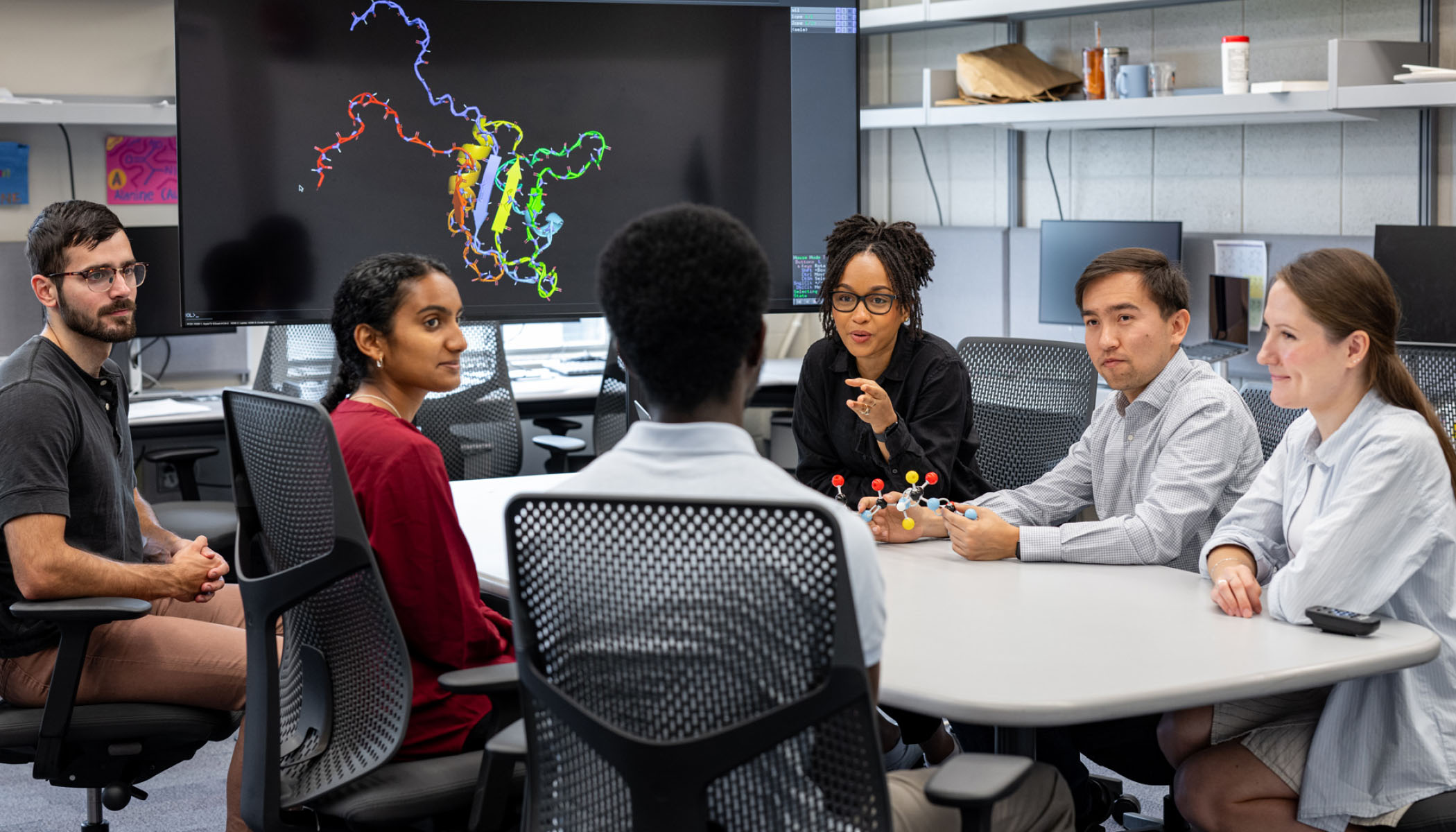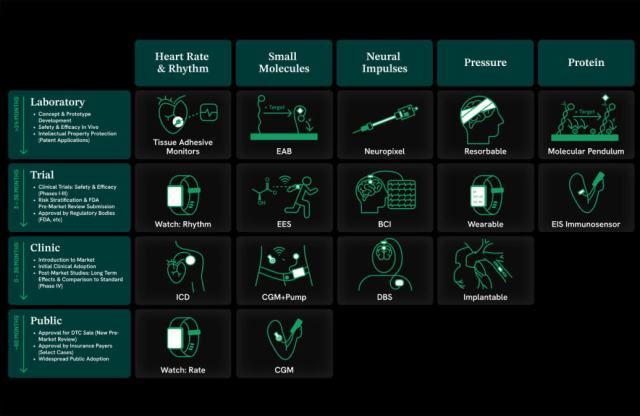Feb 29, 2024 · 4 min read
CZI Announces Multi-Institutional Collaborations for Developing Technology To Better Understand Cells
These efforts will measure and engineer cellular function to better understand health and disease.

Today, the Chan Zuckerberg Initiative (CZI) announced four multi-year grants that will bring together regional labs in California, the Mid-Atlantic, and the Research Triangle in North Carolina to explore the frontiers of genomics, cell biology, and synthetic biology by developing new measurement technologies. These projects will focus on developing technologies to engineer cell and tissue models, exploring cellular responses to genetic and environmental stressors, understanding RNA’s role in metabolism, and more.
“To unravel the mysteries of the cell, we need new technologies, and the Exploratory Cell Networks grants support early-stage tech development driven by collaborations across regional labs,” said Stephen Quake, Head of Science at CZI. “These teams are developing novel tools and approaches to understanding, measuring, and engineering cells and molecules that are critical to building virtual cell models — which will open the door to new discoveries about human health and disease.”
Collaboration is a central component of the Exploratory Cell Networks grants, with each team comprising researchers from at least three different universities. Individual labs involved in the program have developed or envisioned foundational technological advances across biological scales — from genes to cell and tissue networks. Some projects involve computational biologists as partners and aim to generate new types of data that can be used for modeling or other artificial intelligence and machine learning approaches. Exploratory Cell Networks will accelerate the work of these groups by building regional networks of investigators. These Networks will unite nascent technology development that can be combined or bring broader expertise to help deliver or extend new measurement methods.
“We believe that scientific collaborations bring together new ideas and approaches that rapidly accelerate the pace of progress, making it natural for us to foster these enabling, cross-lab partnerships,” said Scott Fraser, CZI Vice President of Science Grant Programs. “Collaboration and building communities of researchers are central to our grantmaking strategy, and we’re excited to see what our new Exploratory Cell Networks teams will accomplish.”
Additional details about each project are as follows:
- Exploratory cell networks to decode and program cellular behavior: The California Institute of Technology, the University of California, Los Angeles, and the University of Southern California will engineer, manipulate, and analyze complex multicellular systems, starting with muscle and immune cells. They will develop technology to study and control how tissues and organs develop their layered structure with synthetic cell receptors and develop new lab-on-a-particle approaches to probe the interactions between individual cells that drive cellular function at a massive scale. Findings from the project could help unlock a variety of cell and gene therapies to treat diseases such as cancer, muscular dystrophy and autoimmune conditions.
- Innovative approaches for charting state-dependent RNA metabolic networks: The Salk Institute for Biological Studies, Scripps Research, and the University of California San Diego, will create a set of technologies to research RNA and cellular metabolism. These methods will clarify how cells respond and adapt to genetic and environmental stresses, including aging and diseases linked to RNA dysregulation, such as Alzheimer’s disease.
- Revealing the hidden topologies of the human kinome: Duke University, NC State University, and the University of North Carolina at Chapel Hill will develop a suite of new tools capable of monitoring and manipulating protein kinases, which are not only key biological regulators but also a frequent target for therapeutic intervention. This work will help researchers better understand cellular organization, nervous system function, and neurological diseases.
- Technologies for mapping RNA/protein flux, assembly, and aging through condensates: Princeton University, The Rockefeller University, and the University of Pennsylvania will develop technologies to clarify how RNA and proteins move and are metabolized within cells, with a specific focus on membrane-less compartments in cells. These new tools will fill a gap in foundational biology and may be helpful for understanding a core process impacting disease diagnosis and aging.
CZI’s work in science includes grantmaking programs, open-source software development, and close collaboration with its partner institutes at the Chan Zuckerberg Biohub Network. The CZ Biohub Network includes the San Francisco, Chicago, and New York Biohubs as well as the Chan Zuckerberg Imaging Institute. CZI also collaborates with institutional partners such as the Kempner Institute for the Study of Natural & Artificial Intelligence at Harvard University. For more information, please visit chanzuckerberg.com/science/.
###
About the Chan Zuckerberg Initiative
The Chan Zuckerberg Initiative was founded in 2015 to help solve some of society’s toughest challenges — from eradicating disease and improving education, to addressing the needs of our communities. Through collaboration, providing resources and building technology, our mission is to help build a more inclusive, just and healthy future for everyone. For more information, please visit chanzuckerberg.com.
Press Contact
Chan Zuckerberg Initiative
Isabella Riezler, (650) 464-0266
iriezler@chanzuckerberg.com





